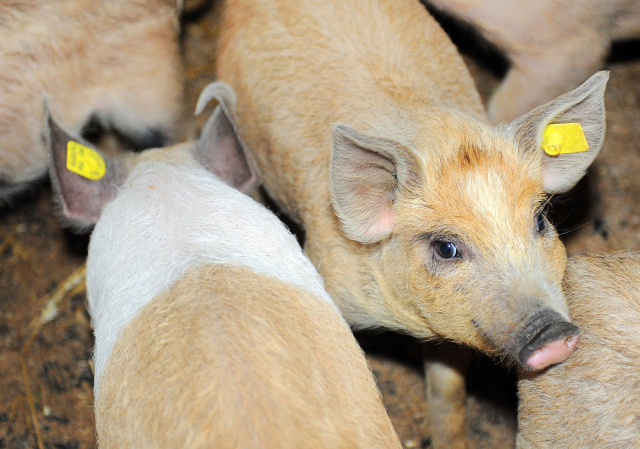The African swine fever – a national problem?
The African swine fever virus continues to spread in Romania and cause huge losses to farmers.

Bogdan Matei, 25.07.2018, 11:52
This is not the best of summers for Romania. Capricious weather,
heavy rain, floods that left in their wake victims and material damage, acute
political and social tensions, economic uncertainty – the general picture has
little to do with the radiance of a summer postcard. On top of it all, the
African swine fever virus continues to spread around the country, with hotbeds
now amounting to around 450. The situation is so serious that the Chamber of
Deputies’ agriculture committee held an informal meeting to discuss it.
The human body is immune to the virus. However, once the virus
infects an animal, it can kill all the other animals at a farm because it is
highly contagious and there is no treatment or vaccine for it, experts say. It
appears that wild boars play the main role in the transmission of the virus. An
example is Tulcea county, in the south-east, and which also includes the Danube
Delta, the home of a sizeable wild boar population. The virus has already been
confirmed at two large pig farms in this county, with one of them having to
cull about two thirds of its 45,000 pigs.
The consequences are devastating for pig farmers. Adrian Iorgulescu,
who is a member of a pig farmers’ association, explains:
In all the counties affected, the approximate number of sows in
authorised professional farms exceeds 50,000, out of a total of 140,000 in the
whole of Romania. Because we are unable to provide young pigs for fattening, we
have to prepare for slaughtering them and apply for compensation from the authorities.
There is no other option, there’s no exception that would allow us to send our
piglets to the fattening farms located in other counties, and this involves roughly
1.5 million piglets a year for 50,000 sows. This amounts to almost half of the
young pigs produced in Romania. The situation is of national importance right
now.
Farmers also say that damages caused by the spread of the African
swine fever virus in Romania amount to hundreds of millions of euros. On a trip
to Brussels last week, Romania’s agriculture minister Petre Daea already
requested funds from the European Commission to compensate for losses caused by
the closure of pork production and the drop in prices in the affected areas.
The aid also covers costs related to disinfection, the destruction of fodder
and the disposal of carcasses, according to the agriculture minister.






























